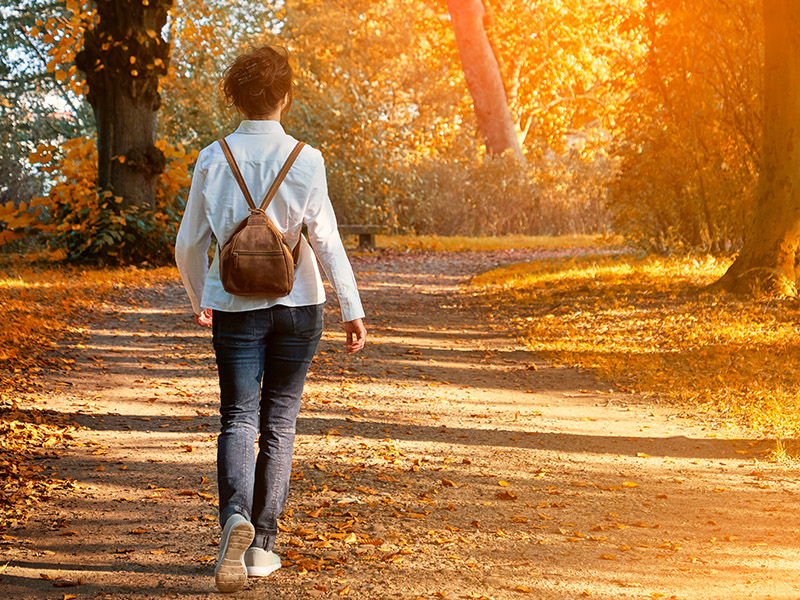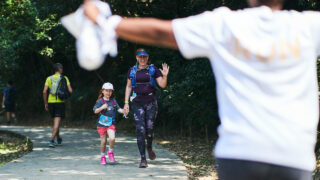Exercise plays an important role in looking after your body, but it’s crucial for your mental wellbeing too. Here are five activities that can have a positive impact on the mind, courtesy of the Bupa team.
#1 Dancing
Wherever you do it – on the dance floor, in your living room or at a class – dancing can make you feel good! A study on the leading reasons why people are motivated to dance socially found that enhancing mood was a clear winner, followed by building self-confidence. Dancing can also improve fitness, build social connections and be a form of escapism. It’s not just the physical movement – it’s the music too. Think about your favourite song – in the lead-up to that great singalong chorus, your emotions become heightened; this, combined with your anticipation, releases dopamine – a feel-good hormone – into your brain. That’s why music gives you goose bumps!
#2 Yoga
Yoga is a mind and body practice that involves movement, breathing and meditation, resulting in a sense of tranquillity, relaxation and calm. By shifting the balance from your sympathetic nervous system (the one that activates the fight-or-flight response) to your parasympathetic nervous system (the one that restores and relaxes), yoga suppresses the areas of your brain responsible for fear and aggression and instead stimulates parts of your brain that generate feelings of bliss and wellbeing. It slows things down, too, lowering both your heart rate and blood pressure.
#3 Walking in nature
Walking is gentle on the body and a great way to explore your local area and be social too. According to research, a 90-minute walk in nature can help you to stop worrying and “let things go”. The key thing here is the natural surroundings – it should be a field or forest, for example; an urban environment won’t have the same effect. Another study found that just 50 minutes walking in nature can decrease feelings of anxiety. This is because we have a close connection with nature, one that we associate with safety. Walking in nature with a group has been found to have a positive effect too – so, to boost your mental wellbeing, go for a stroll on your own or with others.

#4 Swimming
Whether it’s dipping your toes in a paddling pool or deep sea diving, there’s something therapeutic about being in water. Not only does your body release happy hormones when you swim, but research suggests that swimming can reduce stress. Heading to your local baths can also be a great way to socialise and reduce loneliness. Prefer the ocean? Go to the beach and you can get the added benefit of being in the great outdoors. What’s more, swimming is suitable for all ages and is a good form of exercise for those with an injury or ailment such as back pain or osteoarthritis.
#5 Resistance exercise
Sometimes called weight training or strength training, resistance exercise means using your muscles to move a force greater than normal for your body. Research has shown that this kind of exercise can help to reduce anxiety and depression, and increase self-esteem. You don’t necessarily need to lift the heaviest weight you can to feel the benefits either; even lifting a low-to-moderate-intensity weight is useful. It’s also suggested that the longer you practise weight training for (rather than just a one-off session), the greater the benefit.
Everyone is individual; you may respond differently to these different activities. But it’s clear that moving in a way that feels good for you can help lift your mood and enhance your physical and mental wellbeing. So, whether it’s sparring in a boxing ring or rock climbing at a local gym, pick something you enjoy and get moving whenever you can.
This article was brought to you by Bupa Global.
bupaglobal.com | 2531 8562 | globalplanhk@bupa.com
Disclaimer: This article was designed and produced by Bupa Global by searching internal and external data and information for information provision and reference purposes only. Any views or information mentioned and set out in this article/webpage are based on general situations. Readers should not regard them as medical advices or medical recommendations. Before making any decisions about the theme of this article, you are recommended to seek independent advice from suitable professionals (such as doctors, nutritionists, etc.). It is clearly stated that Bupa Global will not bear any responsibilities for others’ usage or interpretation of the information listed in this article. When preparing and/or updating this article, Bupa Global endeavours to ensure that the content is accurate, complete and updated but will not bear any responsibilities nor make any warranty or guarantee for the accuracy, completeness and timeliness of the information or for any claims and/or losses caused thereby.
See more in our Health & Fitness section
Best public swimming pools in Hong Kong
Readers favourite hikes
The growing MMA scene in Hong Kong
This article first appeared in the April/May 2019 issue of Expat Living. Subscribe so you never miss an issue!





